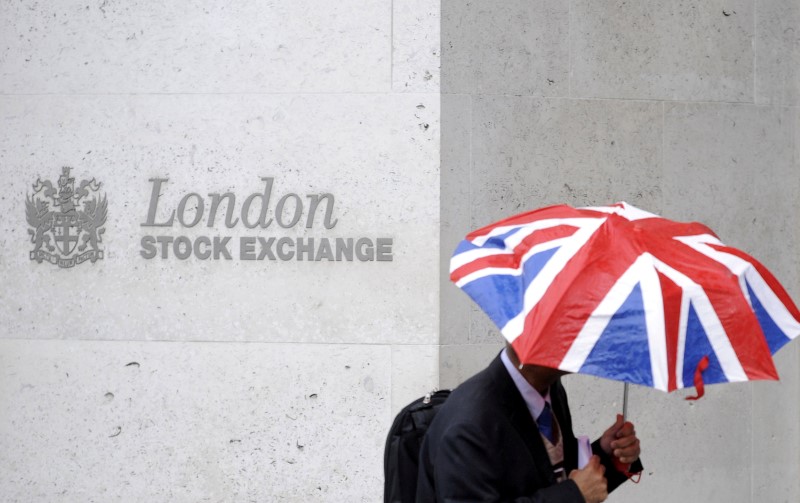By Helen Reid
LONDON (Reuters) - Britain's major share index started the week with solid gains driven by basic resource firms, while a government contract win by crisis-hit construction firm Carillion gave it some respite from heavy losses sustained last week.
Miners pushed the FTSE 100 (FTSE) up 0.4 percent, while mid-caps outperformed, rising 0.6 percent with Weir Group (L:WEIR) and Carillion (L:CLLN) shining.
ITV (L:ITV) was the top blue-chip gainer, up 2.6 percent after the broadcaster said it had appointed Carolyn McCall, boss of airline EasyJet (L:EZJ) as its next chief executive. [nFWN1K805Q]
"For ITV, we think the move suggests the company is comfortable with its strategic direction but her strong personal links should be helpful in several areas," said Liberum analysts.
Anglo American (LON:AAL)
Leading the mid-caps (FTMC) was troubled construction and support services firm Carillion (L:CLLN), whose shares gained as much as 13 percent after its joint venture with Eiffage and Kier was awarded two contracts worth 1.4 billion pounds for high speed rail project HS2. [nL3N1K82U8]
Carillion shares had lost 70 percent of their market value last week.
"This ought to help its share price but whether it can deliver these contracts is another matter," said Neil Wilson of ETX Capital. "It could make it a slightly more attractive prospect to rescue if it comes to that."
Balfour Beatty (L:BALF) also won two HS2 contracts among the $8.6 billion worth of contracts awarded by the government, sending its shares up 2.8 percent. [nL8N1K80XK]
Weir Group (L:WEIR) led European gainers, up 9.2 percent and hitting its highest level since May, after the firm said it expected its oil and gas unit performance to beat analysts' expectations due to strong drilling activity in North America. [nL3N1K82Q5]
Oil services group Hunting (L:HTG) also gained 3.4 percent, while Tullow Oil (L:TLW) rose 3.5 percent.
Pearson (L:PSON), meanwhile, fell to the bottom of the FTSE, down 1.3 percent after Berenberg trimmed its target price on the stock after the company partially sold its stake in Penguin Random House. [nL8N1K8181]
In a note titled "robbing Peter to pay Paul", Berenberg analysts said: "Unlike Pearson's prior disposals of the FT and The Economist, there was no upside value surprise, reflecting the fact that there was only one bidder, and one with a constrained balance sheet."
